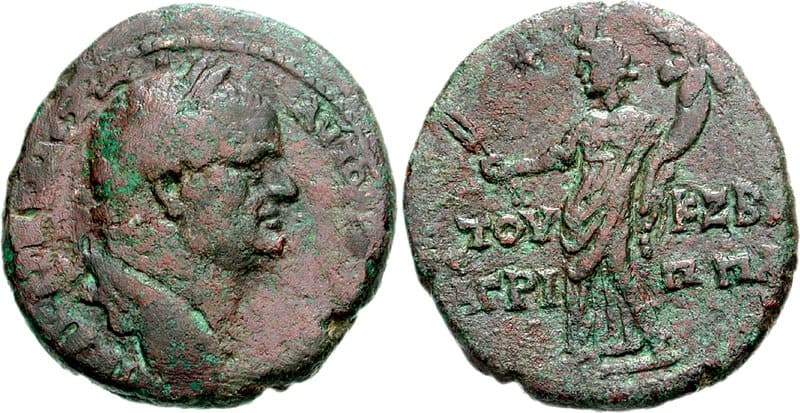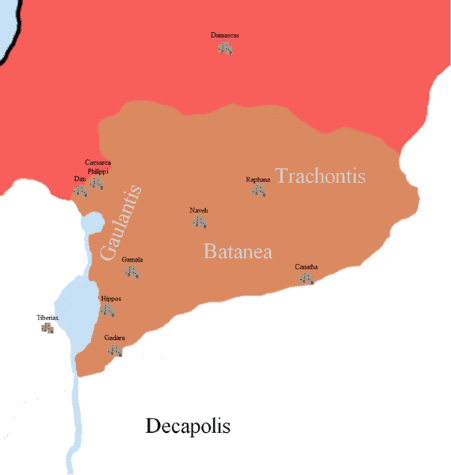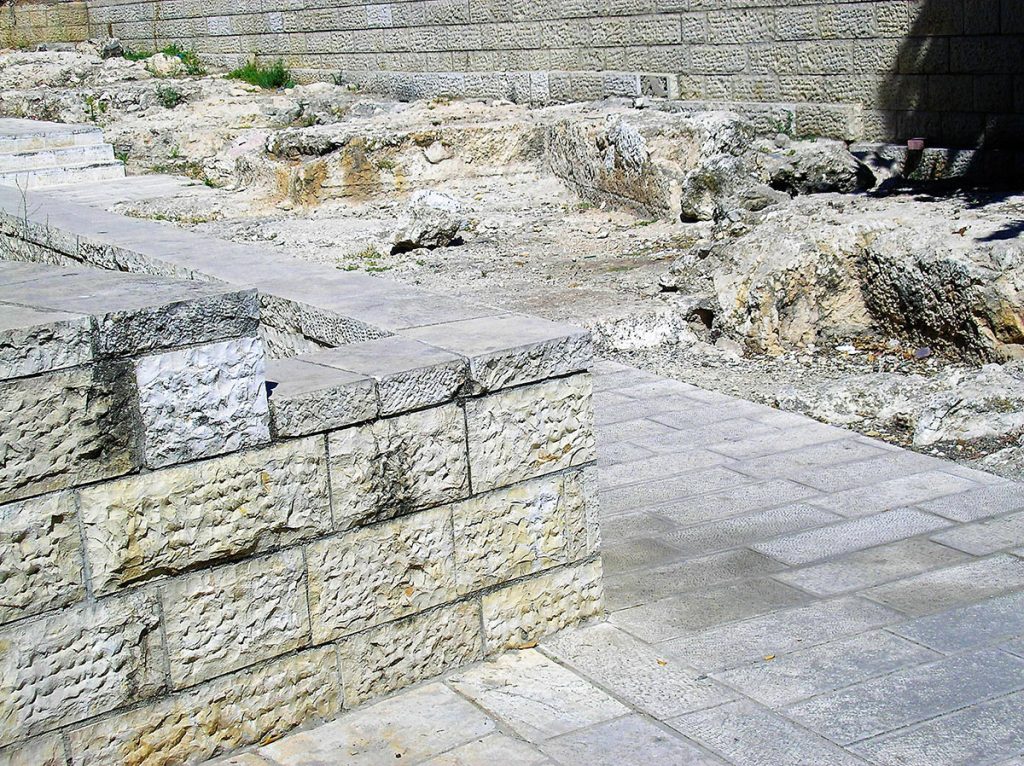Herod Agrippa was the last Jewish King over the Kingdom of Judea. To Pick up from our last post, our story stopped at the moment that Herodias and Antipas decided to help Herod Agrippa, appointing him the Agoranomos. So this was quite a fall for Agrippa that brushed with ancient world magnates, now is a low ranking official at the fringes of the Roman Empire.

Credit: Classical Numismatic Group, Inc. http://www.cngcoins.com, CC BY-SA 3.0, via Wikimedia Commons
When his friend, Lucius Pomponius Flaccus, held the imperial appointment as governor of Syria; he provided sanctuary for Herod Agrippa. Since his brother, Aristobulus Minor was there as well. He was able to drive a wedge between the two, by reporting Flaccus about bribery that Agrippa took from the Damascenes. They needed Agrippa’s assistance in settling a border dispute they had with Sidon in their favor. When this fact became known to Flaccus, Agrippa had to leave Syria.
Herod Agrippa King of Judea : Agrippa In Rome
When Agrippa reached Rome (in 34 CE), he dedicated most of his energy to nurturing his relationship with his friend Caligula, knowing that Tiberius’ death was near. Nevertheless, he was favorably received by Tiberius, who entrusted him with the education of his grandson, Tiberius Gemellus. But this hope for the death of Tiberius caused Agrippa unexpected problems. One of his freedmen, Eutyches, overheard a conversation between Caligula and Agrippa. And when that freedman was arrested for theft, he ratted on Agrippa to get himself off the hook.
When Caligula became Emperor in 37 CE, he got Agrippa out of prison. He didn’t forget his loyal friend and became king of the territories his uncle, Philip the Tetrarch, had held. In addition, he was awarded the ornamenta praetoria and could use the title amicus caesaris (“friend of Caesar”).
Before Agrippa became king, he was just an Agoranomos. Now, he is superior. Herodias, the wife of Herod Antipas, did not like this fact. Agrippa, that was a low-rank official, is now outranking her husband. So Herodias convinced her husband to go to Rome and ask for a similar status. Quickly Agrippa understood that his status might be in danger and accused Herod Antipas of conspiring against Rome with the Parthian Empire. Eventually, Caligula chose to believe Agrippa, exiled Antipas, and gave his territories to Agrippa.
Herod Agrippa King of Judea: The Reign Of Herod Agrippa
When Caligula decides to appoint Agrippa as king over so much land, Caligula signals that Agrippa is his favorite. Caligula gives him the ability to appoint High Priests and control the Jewish Temple. In the way Agrippa governs his kingdom, it seems he had taken a more conservative policy, similar to the days of his grandfather, Herod the Great. For example, he appoints Simon Cantheras as High Priest from the Boethusians. He also offered gifts to the Temple, and he is financing the sin offering of Nazarites and he waived the tax for the Jerusalemites. So you can imagine that all this made him quite popular.
Agrippa is meddling in Roman politics when in the year 41, after the assassination of Caligula, Agrippa is involving himself in the struggle over the accession between Claudius, the Praetorian Guard, and the Senate. It is Agrippa that was sent to the Senate by Claudius to convince them to accept him as Caesar over Rome.

Credit: Map by Rh0809, Wikimedia Commons
Herod Agrippa King of Judea: How Big a Part Agrippa Played?
The various sources differ. Cassius Dio writes that Agrippa cooperates with Caligula in seeking rule. Flavius Josephus gives us two versions: First, in the Jewish War, he presents Agrippa as only a messenger to a confident and energetic Claudius. But in the Antiquities of the Jews, Agrippa’s role is central and crucial: he convinces Claudius to stand up to the Senate and the Senate to
Herod Agrippa King of Judea: Agrippa Under the Rule of Claudius
After becoming emperor, Claudius gives Agrippa dominion over Judea and Samaria and grants him the ornamenta consularia. Thus Agrippa became one of the most powerful kings in the east. Now his domain more or less equaled that which held his grandfather, Herod the Great.
Herod Agrippa King of Judea: King of Judea
Herod Agrippa comes back to Judea in the year 41/42. Keeping Herod the Great policy he appointed High Priests and made sure to replace them once in a while to ensure they are not gaining too much power. Agrippa is wise and is gaining the Jewish people’s love by observing Jewish law. Like Herod the Great, he takes it upon himself to build projects.
In the city of Berytus, he is building a theatre and amphitheater, baths, and porticoes. He was equally generous in Sebaste, Heliopolis, and Caesarea. In addition, Agrippa began building a Third Wall and the outer wall of Jerusalem. But Claudius was not thrilled with the prospect of a strongly fortified Jerusalem. And he prevents him from completing that wall and fortifications.

Why Did Agrippa Build Another Wall?
To emphasize, Agrippa did not try to revolt against Claudius. He just wanted to raise his prestige among the Jews and the rest of the Roman World. But Gaius Vibius Marsus, the Roman Governor of Syria, did not like that fact and accused him, in front of Claudius, of an attempt to undermine Roman Rule. It is true that if Agrippa had finished that wall, the city would have become unconquerable.
Agrippa and Christianity
The Acts of the Apostles, chapter 12 where Herod Agrippa is called “King Herod,” reports that he persecuted the Jerusalem Church, having James Son of Zebedee, kill and imprison Peter around the time of Passover.
After Passover in 44 CE, Agrippa goes to Caesarea, where he participates in the Isactium; games held every four years in honor of Augustus, winning the Battle of Actium in 31 BCE. Agrippa dies from some disease. Acts 12 gives another account of his death, saying an angel of the Lord struck him down, and he died.

